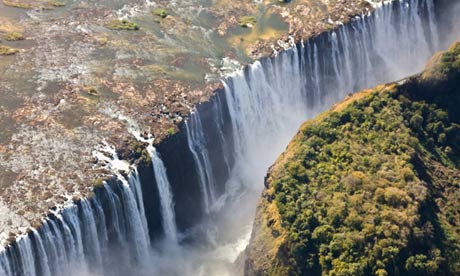Campaigners say most of the siphoned money ends up in tax havens and can be traced to mining multinationals

Washington-based group Global Financial Integrity blamed “crime, corruption and tax evasion” for the loss of $8.8bn (£5.4bn) from the resource-rich country.
The lost money, most of which can be traced to multinational coppermining operations, is equivalent to almost half of Zambia’s GDP.
Dev Kar, an economist and co-author of the report, said: “They [big global mining companies] are robbing the opportunities for the countries to advance, it [the money] could have been used to build hospitals and schools, and lift the economy out of poverty.”
Kar said it was difficult to track where the money goes, but said most of it ends up in “offshore banks and tax havens”.
Sarah Freitas, the other author of the report, said $4.9bn of Zambia’s lost funds between 2000 and 2010 could be traced to trade misinvoicing, in which importers pretend to pay more to foreign companies than they actually do, with the remainder slipped into offshore bank accounts. “This is a very serious problem,” she said.
“Zambia’s GDP was $19.3bn in 2011. Its per capita GDP was $1,413. Its government collected a total of $4.3bn revenue. It can’t afford to be haemorrhaging illicit capital in such staggering amounts.”
Zambia’s deputy finance minister, Miles Sampa, said the report highlighted “what we have always been saying with regard to tax avoidance and income leakages in general”.
Sampa has accused multinational mining companies of using legal tax avoiding measures to escape $2bn a year in taxes. He said only one or two mining operations declare they are making profits from Zambian copper mines, which hold 6% of the world’s known copper reserves.
“The other mines for one reason or another, some genuine, some not, are always making losses,” he said. “Most of it is due to transfer pricing or tax avoidance. We’re looking at developing a law that will criminalise false reporting.”
He said closing the loopholes could generate Zambia at least an extra $1.5bn a year. “How many hospitals can that build? How many roads can that help us to develop?”
The UK government has investigated allegations surrounding Zambia’s lost tax revenues from foreign-owned mines, including claims thatGlencore avoided paying up to £76m a year in tax on its Mopani mine in the countrty. Glencore denies the allegations.
Zambia is currently investigating its justice minister, Wynter Kabimba, over claims he took bribes from multinational trading company Trafigura. Both Kabima and Trafigura deny the claims.
The GFI report (pdf) said “illicit capital flight” has cost developing countries $859m in 2010, the last year for which IMF figures are available. “Astronomical sums of dirty money continue to flow out of the developing world and into offshore tax havens and developed country banks,” Raymond Baker, the GFI’s director, said. “Regardless of the methodology, it’s clear: developing economies are haemorrhaging more and more money at a time when rich and poor nations alike are struggling to spur economic growth. This report should be a wake-up call to world leaders that more must be done to address these harmful outflows.”
Leave a Reply